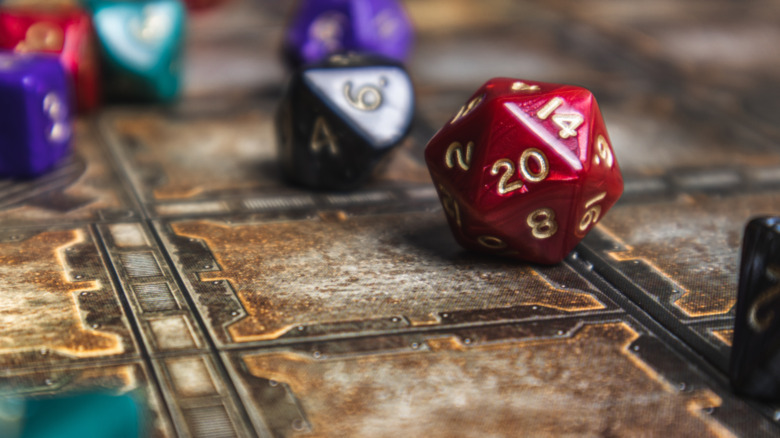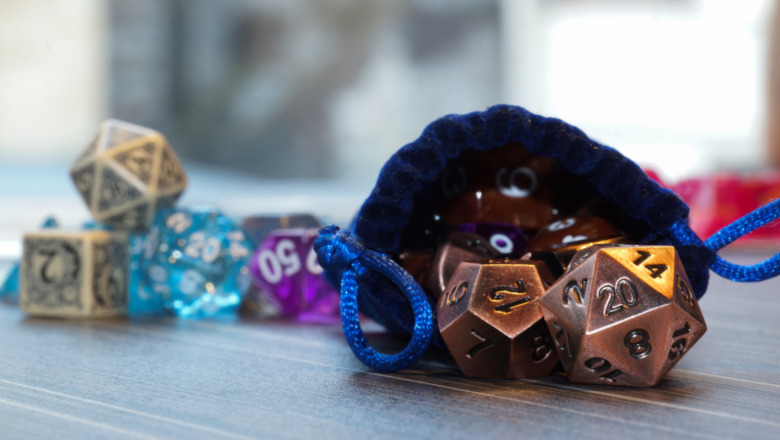Why The FBI Investigated Dungeons & Dragons Players
Dungeons & Dragons, the tabletop role-playing game that has been around for the better part of four decades, has often been misunderstood by people who don't play. For example, for a period of time in the early 1980s, the game found itself front and center of the so-called "moral panic," as The New York Times wrote, with frightened moralists concerned that the game was leading children down the path of Satan worship, drug abuse, and murder.
Concerns about the game also reached the highest levels of the federal government in the United States, with the FBI looking into possible connections between Dungeons & Dragons (D&D) players and domestic terrorism, drug trafficking, political activism, and infighting within groups of players.
As is often the case with D&D, the FBI's interest in the game appears to have come from confusion, hearsay, and rumor. This is the true story of the time the Federal Bureau of Investigation took an interest in nerds rolling 20-sided dice.
the feds were interested in D&D almost from the beginning
The FBI first took an interest in D&D in 1984, according to Polygon, just 10 years after the game was first published, and right at the time that the game was starting to gain interest in popular culture, as well in the middle of the above-referenced "moral panic." However, it wasn't ghoulies and demons that had the interest of the nation's highest criminal investigating authority. It was drugs.
Specifically, an FBI memo dated 1983 notes an investigation into "significant cocaine traffickers in the Lake Geneva, Wisconsin area." The town, popular with weekend tourists coming from nearby Chicago, was the birthplace of D&D and the home of its creator, Gary Gygax.
Gygax did love cocaine, according to the book Empire of the Imagination: Gary Gygax and the Birth of Dungeons & Dragons. However, he was never criminally charged with any drug-related offenses. During the initial investigation, the FBI acquired records of TSR, the company Gygax founded and which served as the corporate parent of the D&D franchise.
Dungeons & Dragons players got caught up in the Unabomber investigation
The FBI took an interest in D&D again a decade later, this time in 1995, according to an article published by Muckrock. At the time, the agency was investigating the case of the Unabomber, who had been sending explosive packages across the West. The Unabomber would be identified as Ted Kaczynski and captured months later. Having obtained the names of scores of D&D players from its earlier investigation into TSR, the agency began investigating players.
How the agency made the connection between tabletop gamers and a domestic terrorist isn't exactly clear, and the evidence the agency left, in the form of heavily-redacted reports made available via Freedom of Information Act requests, only presents part of the picture.
As Muckrock writer JPat Brown explained: "prior to the memo, the Bureau had interviewed a member of the group, who indicated there had been a spat of paranoid accusations regarding the bombings. One of those accusations had apparently made it to the Bureau, possibly through contacts established during an earlier investigation."
The FBI made some interesting conclusions about D&D, its players, and its founder
The FBI reports from its investigations into Gary Gygax, Dungeons & Dragons, and the people who play contain some rather interesting bits of text.
For example, for reasons known only to the person who wrote the report, the agency felt compelled to note that Gygax was "known to be a member of the Libertarian Party," as Reason reported. Further, the agency claimed that Gygax was "eccentric and frightening" and carried a weapon, among other allegations.
As for the people who played the game, the FBI was borderline unkind. For example, according to Muckrock, the agency concluded that players were "extremely intelligent individuals" but also "overweight and not neat in appearance." Similarly, the agency described one group of San Francisco gamers as "armed and dangerous."
What ultimately came of the FBI's investigations into the D&D universe is unclear. The files provided provide "no closing memo," meaning that however the investigators wrapped up their looks into the game and its players, it hasn't been made public.



